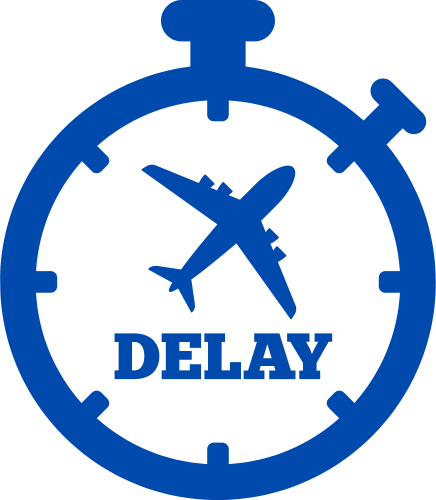Key Takeaways
Return Home Policies prevent care gaps by requiring confirmation from the client before pet sitters end their services, ensuring pets are never left alone by assumption.
Pet sitters must follow up if they don’t hear from the client, and resume care if necessary—charging appropriately when the sitter returns due to lack of communication.
Travel delays and tragic incidents happen, especially during holidays, so it’s not a matter of if but when a Return Home Policy will be needed.
Emergency Action Plans are the next step in preparedness, outlining who takes over care and how it’s managed if the client doesn’t return or if the sitter is unavailable.
Pet owners should ask about these policies before booking and work with sitters to put a plan in place if one doesn’t already exist.
A Cautionary Tale: When No One Follows Up
Imagine this: A pet sitter completes a week-long booking for a dog named Max. The owner was scheduled to return home Sunday evening, and the sitter leaves after Max’s final walk that afternoon. No one follows up. The sitter assumes the client is home. The client never contacts the sitter. Days pass.
What the sitter doesn’t know is that the client tragically died in a car accident on the way home.
Max is alone. There’s no food or water left. No one knows to check on him because there was no Return Home Policy in place. By the time someone investigates, it’s too late.
This isn’t just a hypothetical. These kinds of tragedies have happened. And they are preventable.
For Pet Sitters: Why You Need a Return Home Policy
A Return Home Policy, also called Transfer of Care, is a crucial agreement that ensures the safe and confirmed handoff of responsibility for a pet once a sitter’s services conclude.
Here’s What A Retun Home Policy Should Include
Client Must Confirm Their Return: The booking is not considered complete until the client has directly notified the sitter they have arrived home safely.
If No Confirmation: The pet sitter will reach out by text or phone.
Still No Response? The sitter returns to the home to ensure the pet is okay and resumes care if necessary.
Charges Apply: If the client is home but failed to follow the policy, a drop-in fee (or more) will apply.
In Writing: This policy must be discussed, agreed upon, and signed before the booking starts.
Without a return policy, everyone, especially the pet, is vulnerable.
Real-World Stats That Matter

When creating a Return Home Policy, it’s important to understand the real-world risks that can disrupt a smooth handoff of pet care. Pet sitters and pet owners alike must acknowledge that travel delays and accidents are not rare occurrences—they’re statistically likely events that make planning essential.
Between 2015–2025, around 2% of flights were canceled and 18–20% were delayed. This means that over time, especially for pet sitters who work with frequent travelers or operate long-term, it’s very likely they will face situations where clients return home later than scheduled.
For example, a sitter managing 1,000 bookings a year may experience at least 14 canceled flights over a decade leading to delayed returns, just based on airline stats alone.
Many pet sitting jobs occur during holidays, a time when travel is more frequent and delays are even more common. This alone increases the likelihood of clients returning later than expected. Or even worse, car accident rates spike during these times (e.g., 53% increase in fatal car crashes over New Years Eve and New Years Day compared to non-holiday travel), increasing the risk of tragic outcomes that no one wants to imagine—but must prepare for.
Moreover, there is a 1 in 95 lifetime chance of dying in a car crash—sobering data that reinforces why clear communication and emergency plans are critical.
These facts underscore the importance of not leaving pet care to assumption. Preparedness isn’t about fearing the worst; it’s about being ready for what could happen, even if it’s unlikely.
For Pet Owners: Why You Should Want (and Demand) a Return Home Policy
As a pet owner, your role in this process is just as critical.
Here’s What You Need to Do
Ask if your sitter has a Return Home Policy. If they don’t, ask to establish one. Responsible pet sitters will welcome this conversation.
Understand your responsibilities
- Notify your sitter as soon as you’re home.
- Have backup contacts and emergency guardians designated in advance.
- Respect that a sitter’s time and services are valuable; if they return due to no response from you, expect to pay for that time.
This isn’t just about logistics. It’s about love. It’s about ensuring your pet never becomes a tragic footnote in an avoidable incident.
Don’t Stop There: Include an Emergency Action Plan

What if you’re delayed for days? Or permanently unable to return?
That’s where an Emergency Action Plan (EAP) comes in.
This plan should cover:
2–3 emergency contacts
Your vet’s information
Whether the sitter can extend care, and for how long
How continued care will be paid for
Designated temporary guardians (read more on planning for your pet’s future)
Instructions on transferring care (e.g., from sitter to guardian or boarding facility)
You should make all of these decisions before your departure and include them in your care agreement.
Pet Sitters: Build Trust and Protect Your Business
Having a documented Return Home Policy and Emergency Action Plan:
Protects your reputation
Shows professionalism
Builds client trust
Keeps pets safe
Clients will appreciate that you’ve thought ahead. It sets you apart in an industry where too many pet sitters assume the best and plan for nothing.
Pet Owners: Screen Pet Sitters for These Policies
Before hiring a sitter, ask questions like:
“What’s your Return Home or Transfer of Care Policy?”
“Do you have an emergency plan in place in case I can’t make it back?”
Use our Beginner’s Guide to Finding the Perfect Pet Sitter to help evaluate candidates.
If a sitter hasn’t established these policies but you like them, have the conversation. It shows you care, and a good sitter will rise to meet you.
Final Thoughts: Pets Deserve Better Than Assumptions
Whether you’re a pet sitter or a pet parent, don’t let assumption stand in for action. A dog, cat, or any beloved animal should never go days without care simply because no one confirmed a homecoming.
Establish a Return Home Policy. Build an Emergency Action Plan.
The safest transitions happen when everyone knows what happens next.
